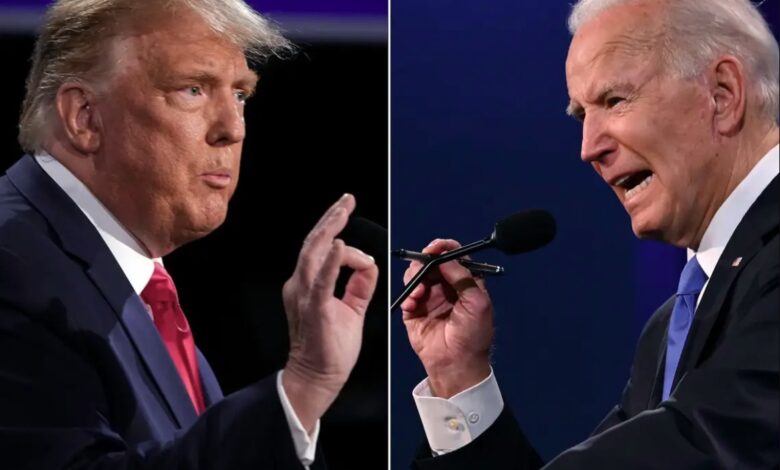Wissal Khlifi, Department of translation and Interpreting.
12-03-2024
The enduring competition between President Joe Biden and his predecessor, Donald Trump, remains a significant aspect of the constantly changing realm of American politics. Going beyond the traditional boundaries of political discord, their conflict has escalated, with Trump making allegations against Biden, specifically concerning Ukraine’s defeat by Russia. This ongoing narrative encapsulates the intricacy and strain within modern U.S. politics.
Trump’s Accusations:
Donald Trump, the 45th President of the United States, has been vocal in expressing his dissatisfaction with how the Biden administration is managing both domestic and international matters. Trump’s critique primarily revolves around the Ukraine-Russia situation. According to Trump, Biden has failed to effectively address the vulnerabilities of Ukraine, resulting in Russia’s seizure of Crimea and ongoing aggression in that area.
Biden’s time as Vice President during the Obama administration is frequently targeted by Trump in his allegations. Trump claims that Biden’s approach to countering Russian aggression was ineffective, resulting in a bolstering of Moscow’s expansionist goals. Trump consistently presents Biden as lacking strength in foreign policy matters, underscoring the importance of strong leadership to protect American interests overseas.
The Ukrainian Loss to Russia:
At the heart of Trump’s accusations lies Ukraine’s loss to Russia, a critical geopolitical event with significant consequences. The international community vehemently criticized Russia’s takeover of Crimea in 2014, which escalated the tension between Moscow and Western nations. Despite their failed, continuos attempts to impose economic sanctions and isolate Russia diplomatically, its stronghold in Eastern Ukraine remains, fueling an enduring conflict that has resulted in the loss of countless lives.
The post-Cold War order in Europe faces a substantial challenge with the annexation of Crimea and the ongoing conflict in Eastern Ukraine. This situation serves as a reminder of the intricate power dynamics and the ongoing battle for control in the region. Additionally, it emphasizes the intricacies of U.S. foreign policy, specifically in managing relations with Russia and providing support to Eastern European allies.
The Biden Administration’s Response:
The Biden administration has reaffirmed its support for Ukraine’s sovereignty and territorial integrity in response to Trump’s accusations. In his denunciation of Russia’s activities in Crimea and Eastern Ukraine, President Biden emphasized the need for a cohesive transatlantic strategy to thwart Russian aggression. In addition, the administration has targeted sanctions and military support for Ukraine while putting pressure on Moscow through diplomatic channels.
The Biden administration has worked to reclaim American leadership on the international scene by putting an emphasis on multilateralism and collaboration with allies, in spite of criticism from the Trump camp. Also, the Biden administration has attempted to handle global issues, such as the Ukrainian conflict, through diplomatic channels and international forums, with an emphasis on advancing democratic values and maintaining the rules-based international order.
Conclusion:
The feud between Biden and Trump, amplified by accusations surrounding Ukraine’s loss to Russia, reflects the enduring divisions within American politics. As both figures continue to shape the discourse on domestic and foreign policy, their rivalry underscores the stakes involved in navigating complex geopolitical dynamics. With Ukraine at the center of this dispute, the path forward remains uncertain, highlighting the need for strategic leadership and concerted international efforts to address the challenges of the 21st century.

